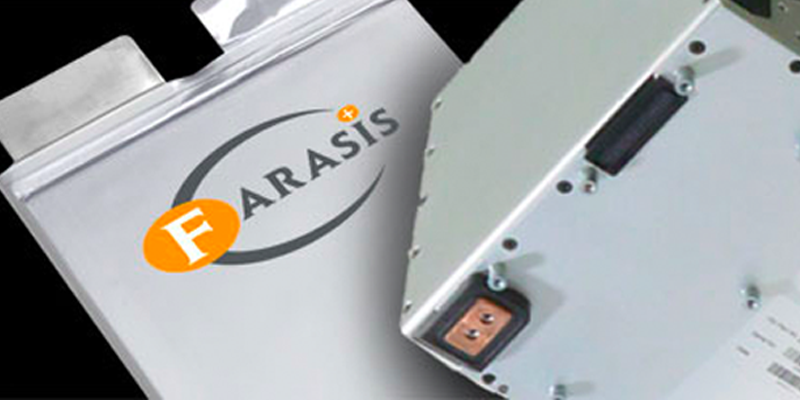Farasis battery production in Saxony delayed
According to a media report, the start of battery cell production by Daimler partner Farasis Energy in Saxony-Anhalt will be delayed by two and a half years from April 2022 to October 2024. The background to this is that Farasis is currently pooling all its resources to get its existing factories in China up and running without disruption.
++ This article has been updated. Kindly continue reading below. ++
This was reported by the German publication Handelsblatt with reference to industry circles. The company confirmed the information to the newspaper: “We have decided to prioritise the ramp-up of production at our lead plant in Zhenjiang,” says Sebastian Wolf, Regional President Europe at Farasis. “In this context, we are adjusting the schedule for localisation in Europe.”
Formal approvals are still missing for the first construction phase at the European plant in Bitterfeld-Wolfen, although the first phase should have been completed by now. For Daimler, however, this should not result in any delays in the delivery of the promised cell volumes: Farasis will deliver the cells for the Mercedes electric cars from Zhenjiang until 2024, according to the report.
Farasis manager Wolf describes the ramp-up as a “complex optimisation task”. “The ramp-up of mass production ties up capital and management capacity,” Wolf said. Once production in China is stabilised, “a functioning production concept should then be transferred to Europe”.
However, Europe does not necessarily have to mean Bitterfeld-Wolfen. According to Wolf, Farasis is still planning to manufacture a new generation of cells in Europe. “At the same time, we are currently evaluating various options for locations where we can produce cells in Europe,” the Handelsblatt quotes the manager as saying. A decision is to be made in about six weeks – so the factory in Saxony-Anhalt could theoretically be cancelled before it is built.
According to the plans announced in 2019, pouch cells are to be produced at the plant and up to 2,000 jobs created. Farasis Energy has already acquired the site, and has also prepared building applications. According to Wolf, these preparatory works are “facts that speak for Bitterfeld” – but he did not want to give a guarantee that the plant will be built.
Daimler had taken a stake in Farasis in 2020 and agreed on a strategic partnership. In February 2021 there were reports that there were problems in the cooperation. On the one hand, the delays in Bitterfeld were mentioned, which would “sensitively affect” Mercedes’ accelerated electrification plans. On the other hand, the first cell samples had been “catastrophic”. Both Daimler and Farasis had vehemently denied the report at the time, stressing that supplies were assured.
Farasis is planning a plant in Turkey as well as in Bitterfeld-Wolfen. Among others, the Turkish manufacturer Togg will be supplied from there. Production there is scheduled to start in 2022.
Update 14 September 2021
The planned construction of the battery cell factory of the Daimler partner Farasis Energy in Bitterfeld-Wolfen (Saxony-Anhalt) still seems uncertain. The German MDR reported that a “major customer” is said to have terminated the cooperation. According to the report, this customer was Daimler. However, Farasis contradicts this information, and the MDR article is no longer available online.
Farasis assured “that the strategic partnership between Daimler and Farasis Energy remains unchanged”. “The fact is that the automotive group has still held a 3 per cent stake in Farasis Energy since 2020. On 23.7.2021, Daimler board member Markus Schäfer was also appointed to the Farasis supervisory board. Mr Schäfer would not have taken up this post if the partnership were in any way in question,” Farasis said. The statement that Daimler or “a major customer” had terminated the partnership was therefore “false and untrue”.
In the statement, however, Farasis admits to “shifts in priorities and timings, which also affect the planned site in Bitterfeld”. The strategy for Bitterfeld will be announced “in due course”. The reasons given for the delay are “turbulent developments in this market” and “major European projects”. “And since our manpower is limited, we have to set priorities,” Farasis says.
On the other hand, the departure of European head Sebastian Wolf is confirmed. Wolf has decided to take on a new challenge. “We understand this and thank him for his commitment to Farasis Energy,” the statement says. The personnel matter has ” no impact on the business strategy of Farasis Energy”. The interim management of Farasis Energy Europe is in the hands of Stefan Bergold, Head of Business Development EU & US and André Gronke, Head of Global Engineering.
handelsblatt.com (in German), mdr.de (update in German)





0 Comments